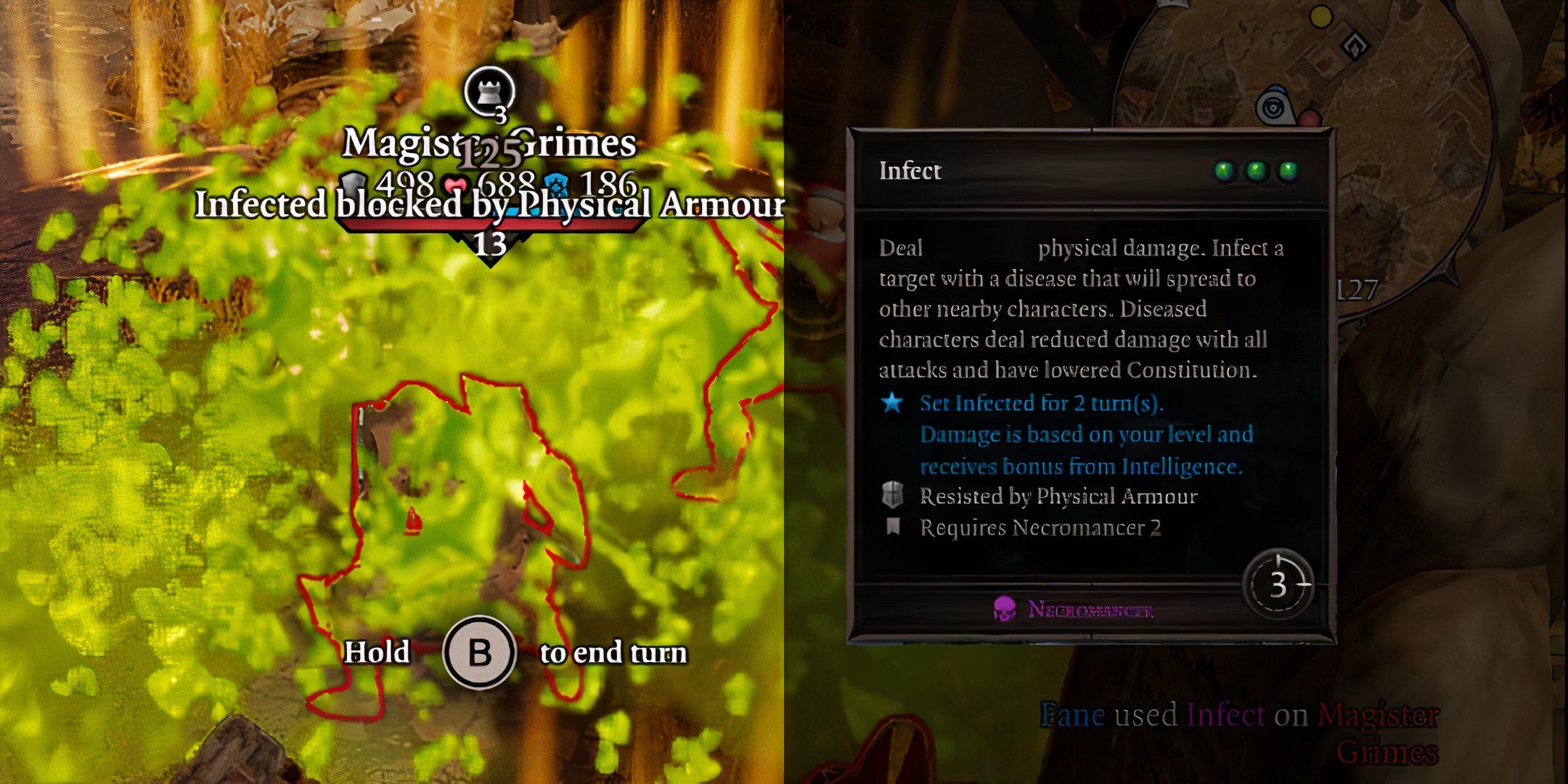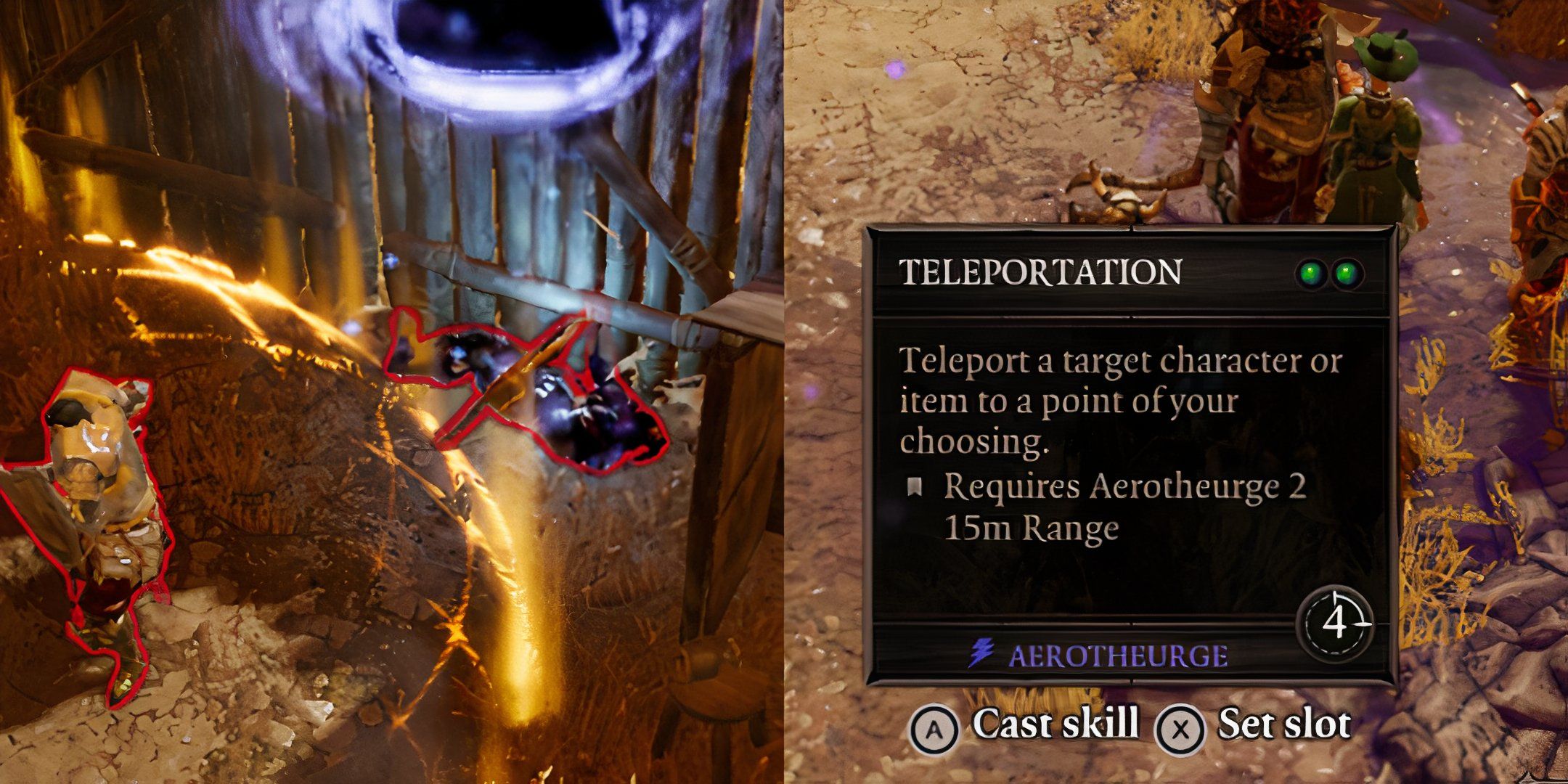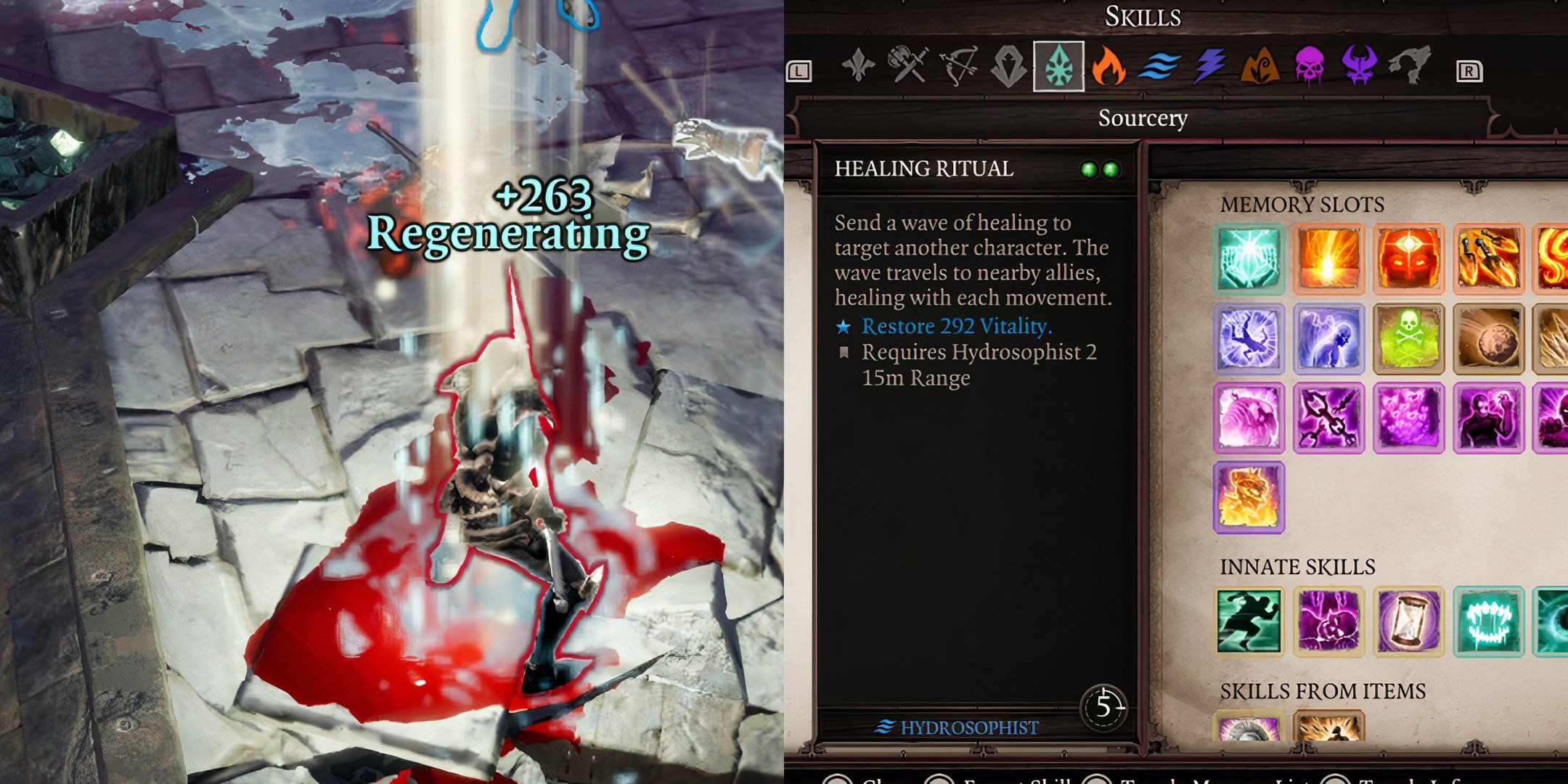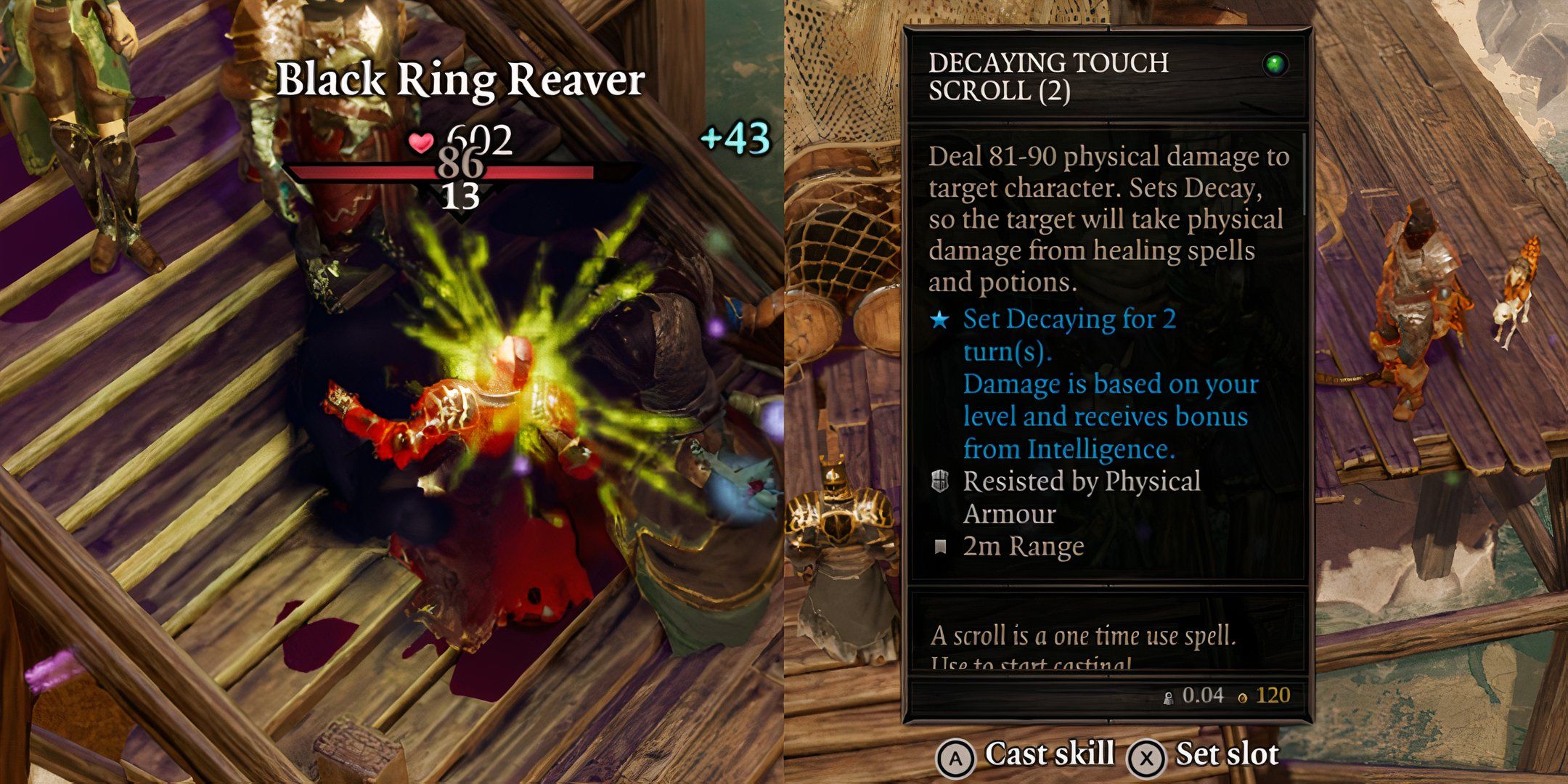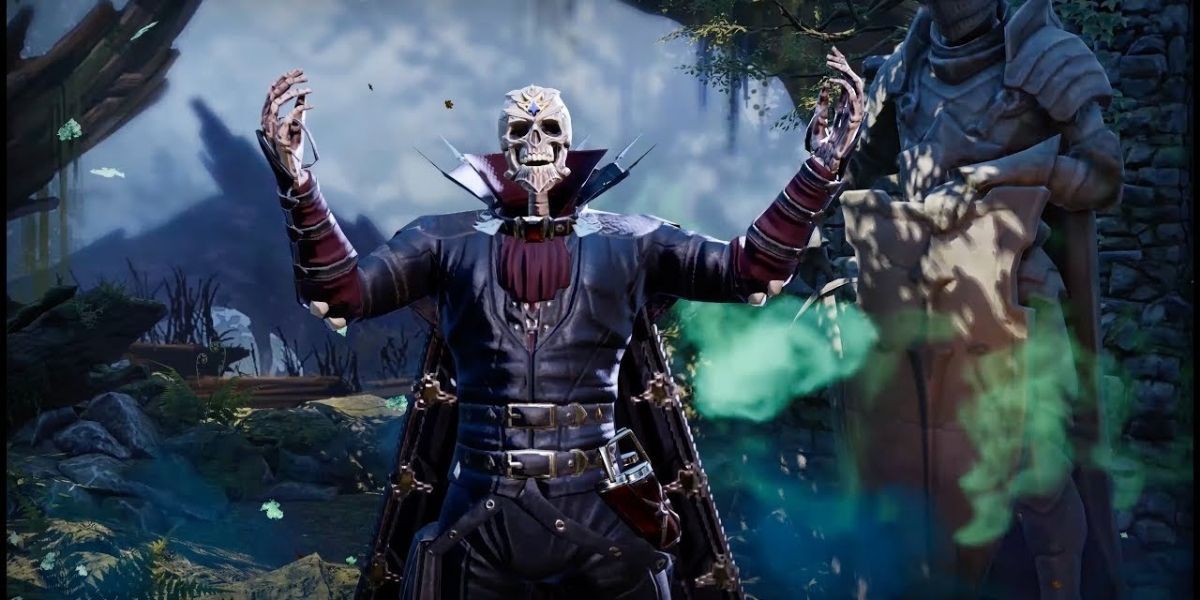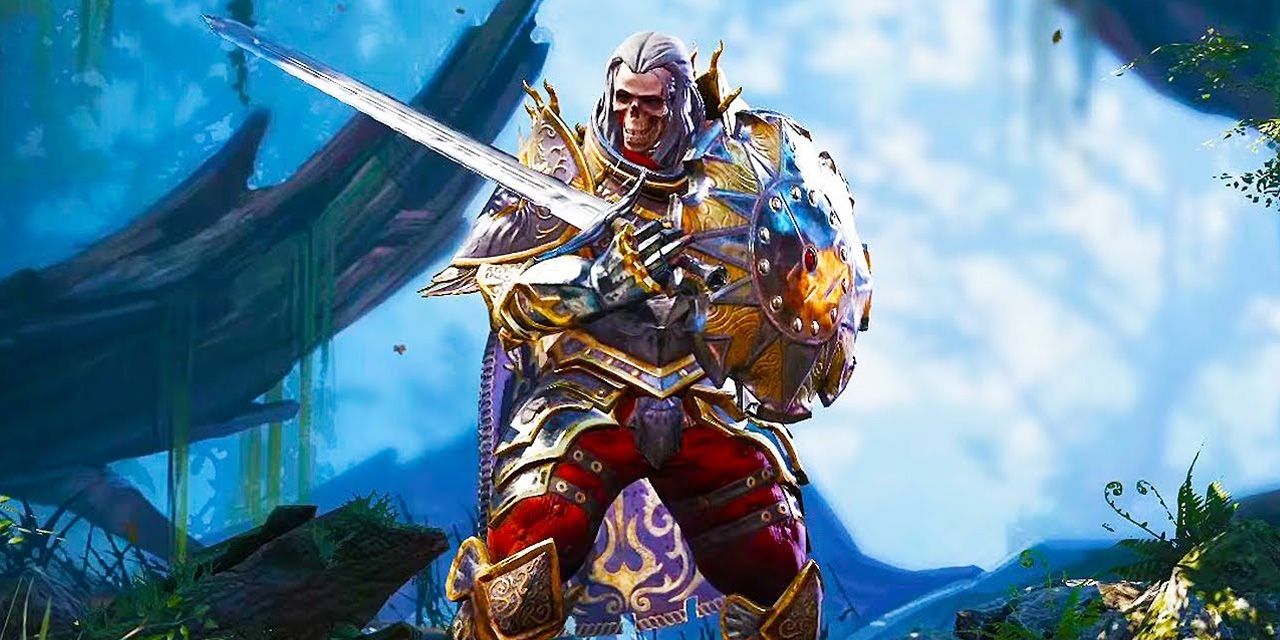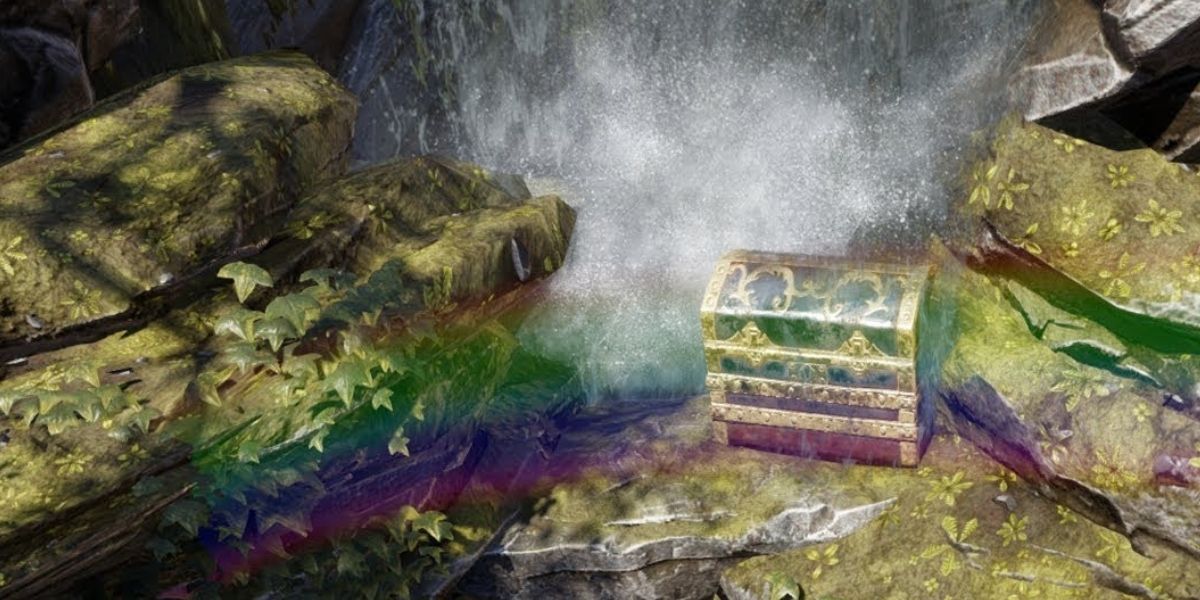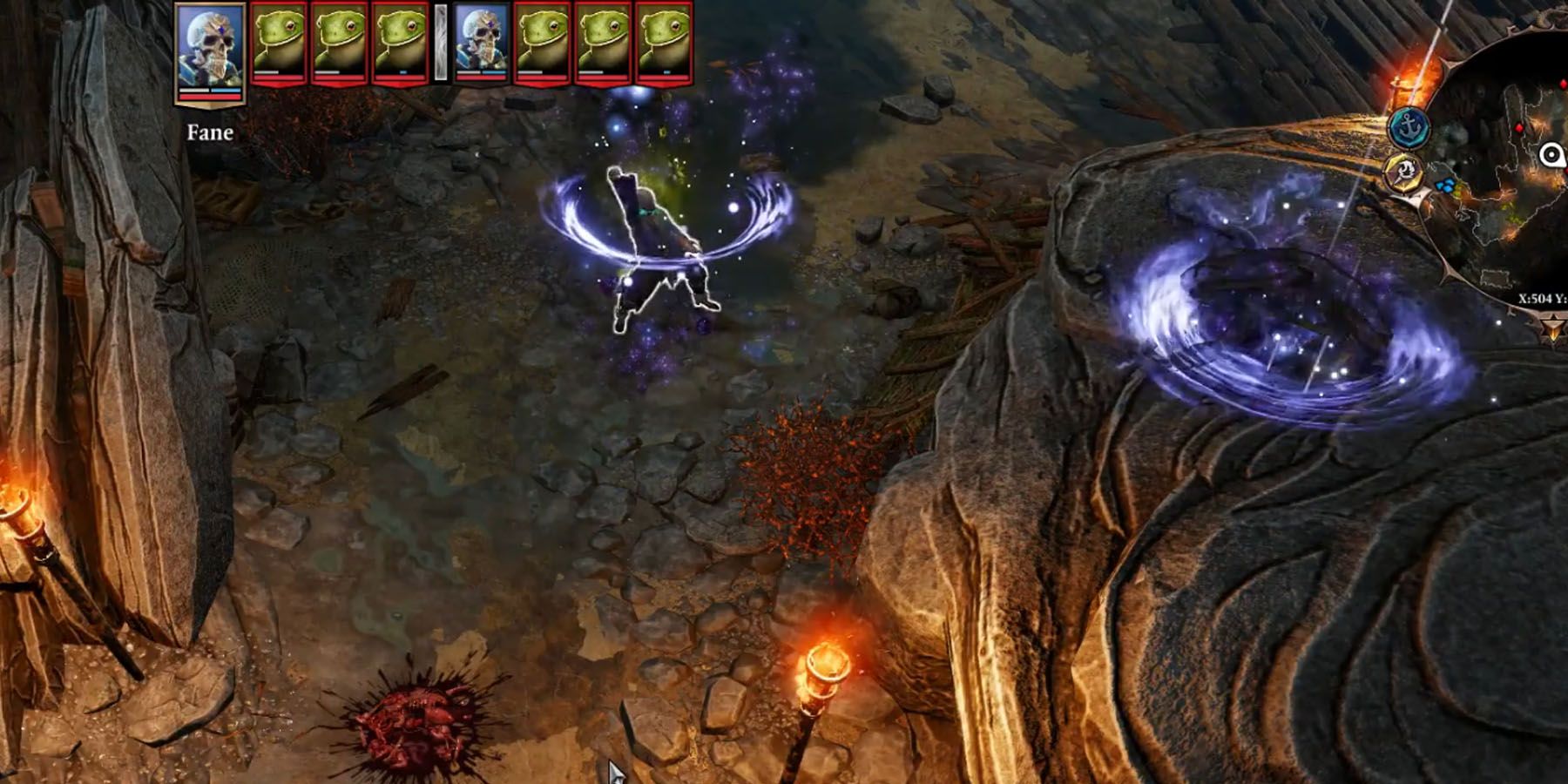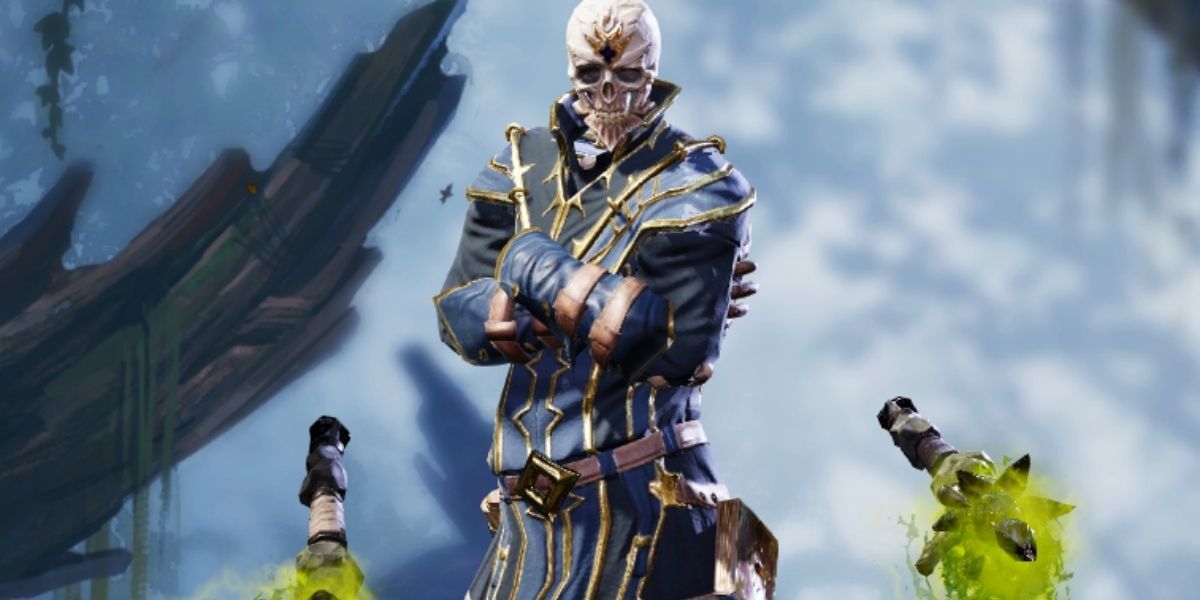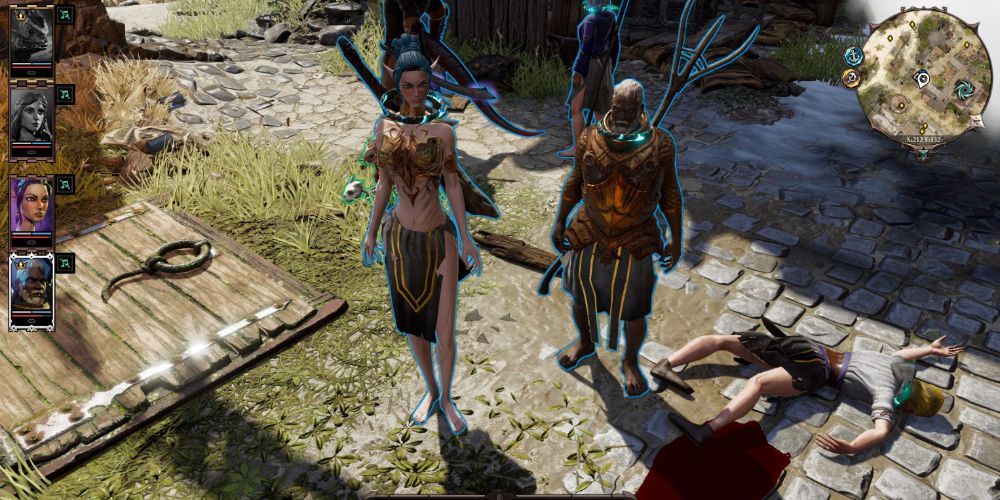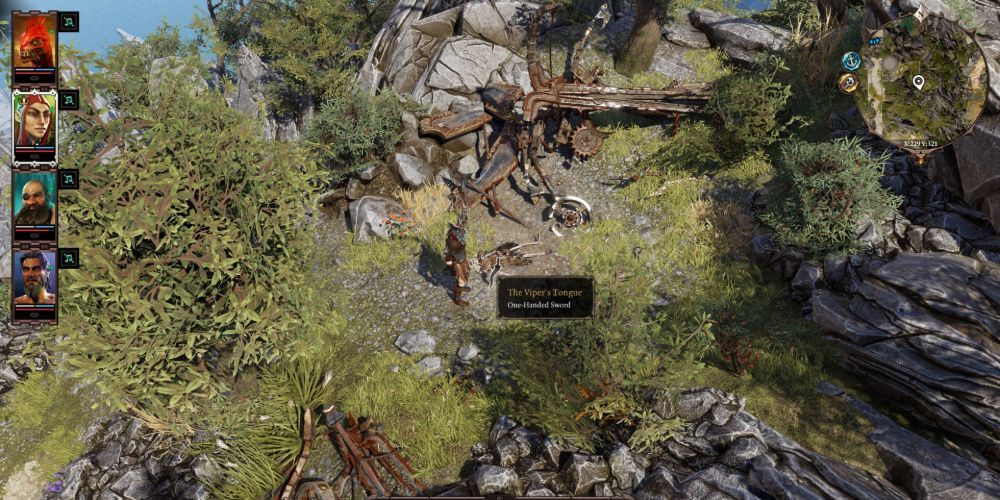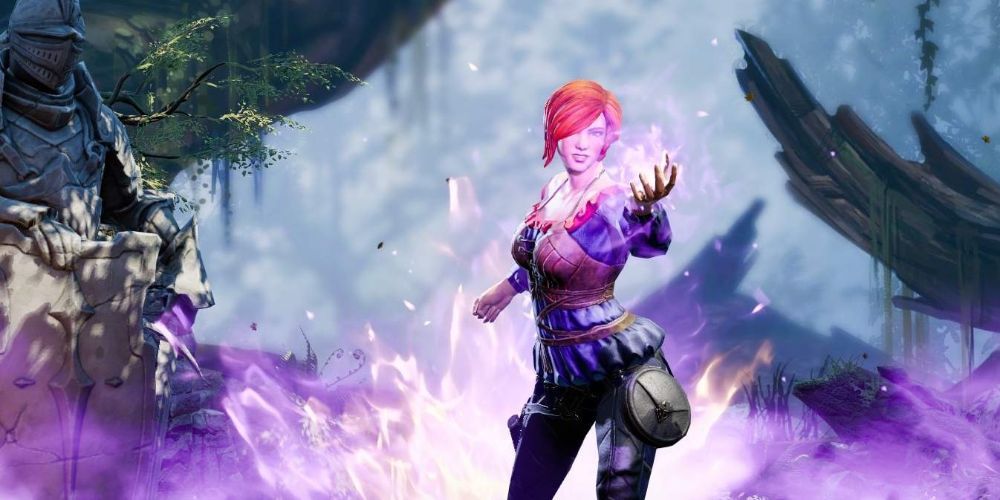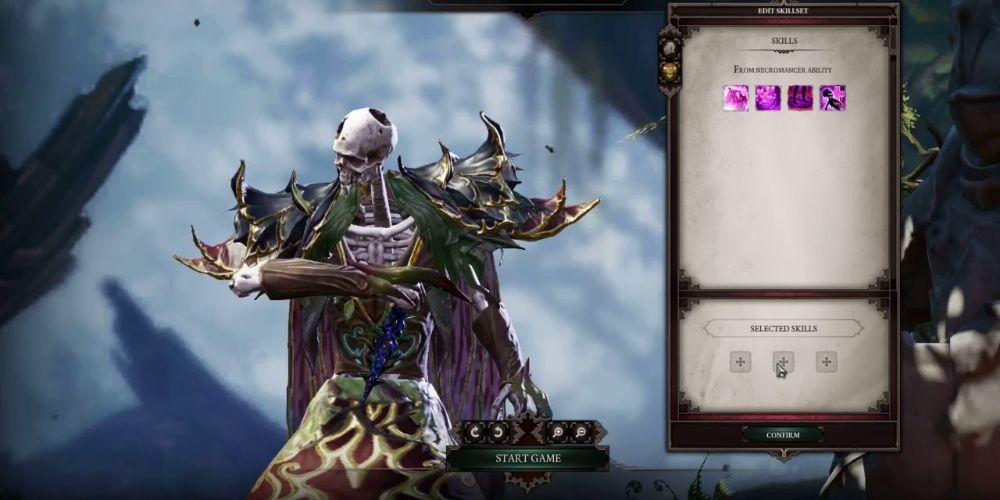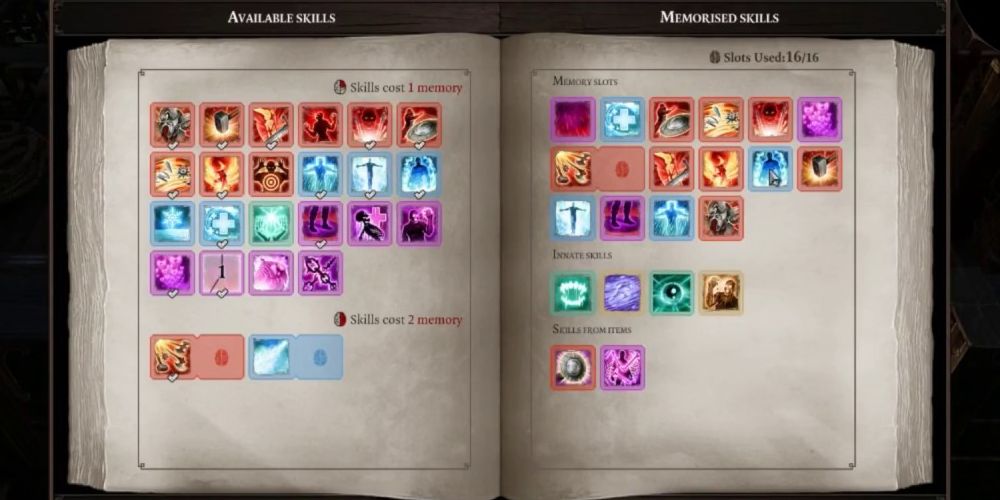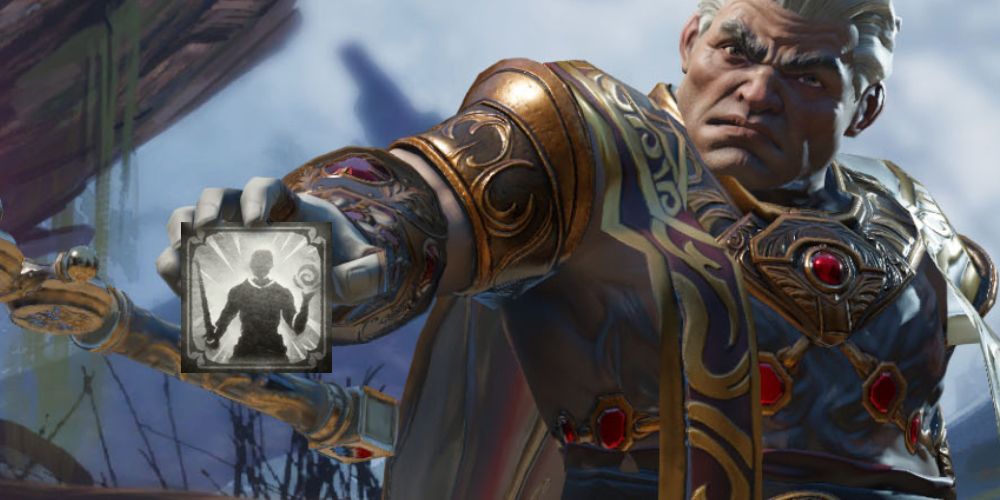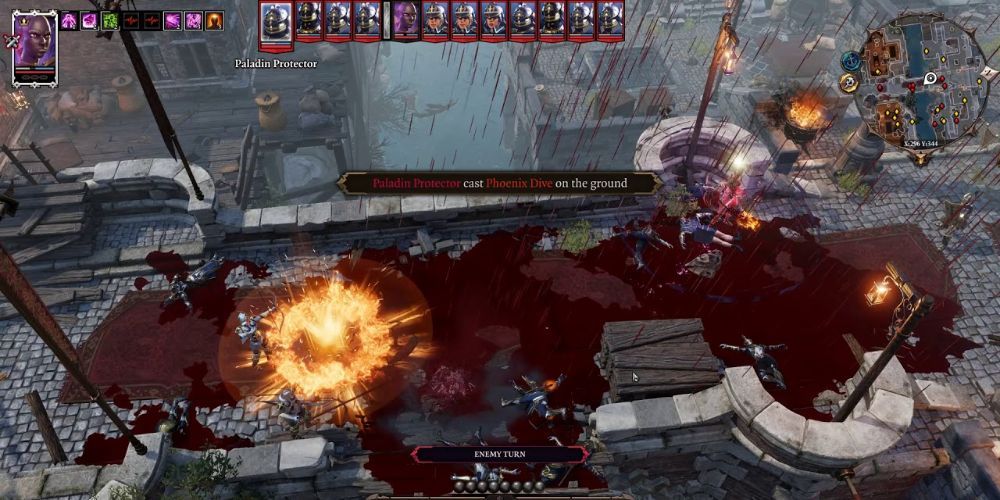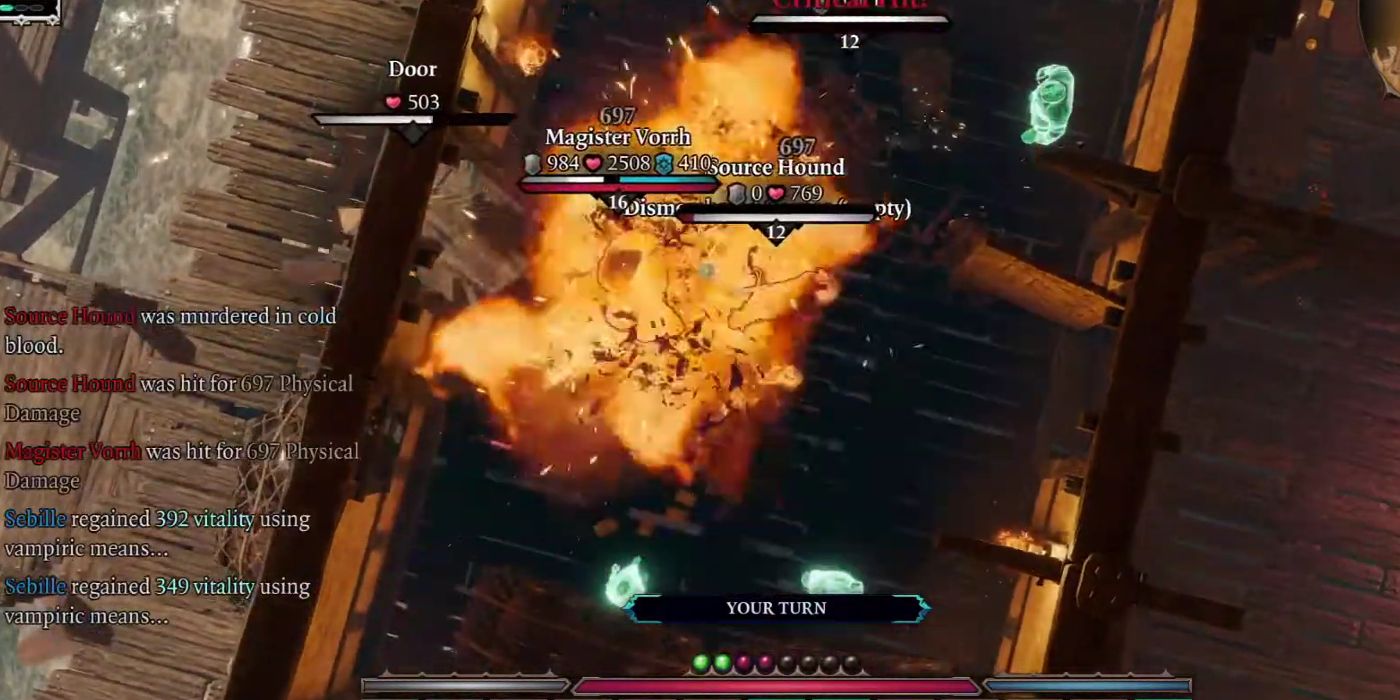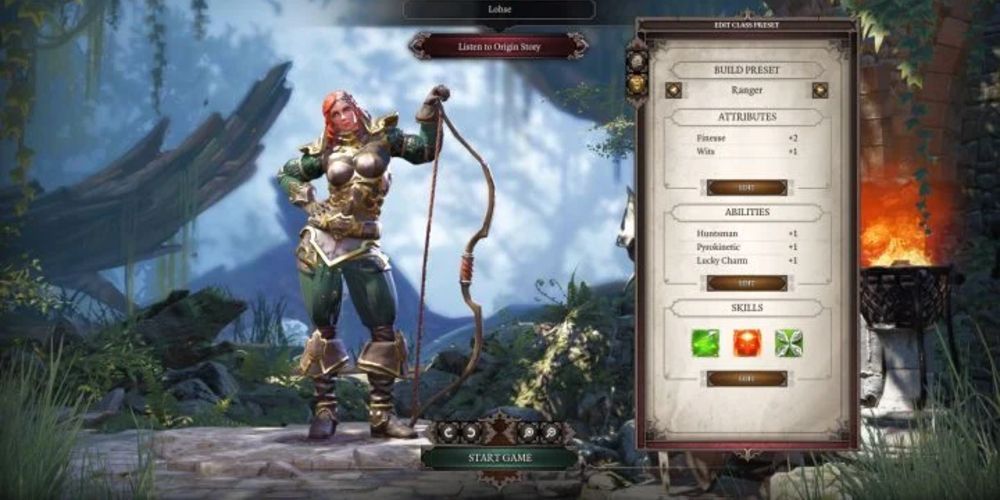Games
Divinity: Original Sin 2: Pro Tips For Making A Necromancer Build

Key Takeaways
Table of Contents
- Necromancers dominate DOS2, excelling in crowd control and damage output with proper talent choices and gear.
- Aerotheurge skills enhance Necromancer mobility, allowing for strategic positioning and effective close-range attacks.
- Healing support synergizes with Necromancer skills, turning Decaying Touch into a powerful asset against foes.
Larian Studios’ landmark RPG Divinity: Original Sin 2 is known for encouraging players to be creative with the game’s mechanics. Players can choose from a variety of initial classes at the start, then choose to continue down a predetermined path or forge their own way with a hybrid build.
Related
Baldur’s Gate 3: 19 Things It Improved From Divinity Original Sin 2
Baldur’s Gate 3 has made substantial improvements from Divinity: Original Sin 2 that fans will appreciate.
The Necromancer in Divinity Original Sin 2 is perhaps the most powerful class in the game. With the proper build, Necromancers can wipe out multiple enemies without giving them a chance to react, but its power relies on choosing the right talents, skills, and equipment as the player continues through Rivellon.
Updated on November 1, 2024 by Rhenn Taguiam: Fans who want to take a break from saving Faerun in their Baldur’s Gate 3 gameplay might want to consider trying out Larian Studios’ other highly-acclaimed RPG – Divinity: Original Sin 2. However, fans who want to experience a unique take on the necromancy gameplay style may want to check out the Necromancer of Divinity: Original Sin 2. With the game’s Necromancer Skill School dealing with both summons and controlling aspects of life and death, players who want to dominate DOS2 gameplay with these mechanics should look at how a Necromancer build encourages crowd control, encourages Aerotheurge for mobility, work best with a healing support unit, and how Decaying Touch can become quite an asset despite being an early-game acquisition.
19 Push For Crowd Control
Get Crowd Control Skills To Avoid Punishment
- Capitalize on AOE-based Skills (Infect, Black Shroud, Grasp of the Starved) to guarantee damage and control effects for all opponents
- Dip into Skill Schools that grant AOE based on playstyle
As the Necromancer is a spellcasting-heavy archetype, it’s natural for the Divinity: Original Sin 2 player to be worried about their general safety when facing many foes at once. Since they don’t have the basic firepower of Wizards, Necromancers might be worried they’re not contributing as much to the combat effort if they don’t deal as much damage. This is where crowd control comes in, as the Necromancer’s kit is usually tailored towards controlling opponents and ensuring the rest of the party obliterates them. With the flexibility of Original Sin 2 gameplay, Necromancers can even dip into other Skill Schools to determine how they want to control the battlefield.
At base, Necromancers alone can use Infect (Necromancer 2) to spread debuffs around nearby foes, while Black Shroud (Necromancer 3) can Blind opponents and leave them defenseless. Pyrokinetic is an easy DPS-oriented dip, courtesy of Ignition and Searing Daggers (Pyrokinetic 1), as well as Fireball (Pyrokinetic 2). Likewise, even Hail Strike (Hydrosophist 1), Winter Blast and Ice Fan (Hydrosophist 2) is a nifty DPS move. When Necromancers have Decaying Touch, the likes of Healing Tears (Hydrosophist 1, Polymorph 1), Healing Ritual (Hydrosophist 2), and Mass Cleanse Wounds (Hydrosophist 2, Warfare 2) can become debilitating damage-dealers to foes.
18 Go Aero For Mobility
Secure Safety In Mobility With Aerotheurge
- Dip into Aerotheurge to get access to mobility-enhancing Skills
- Not only do these grant teleportation but allow Necromancers to get up close for attacks
Necromancers who want to dish out as much damage to enemies will likely rely on Decaying Touch on heavy-hitting bosses. Unfortunately, the fragile nature of Necromancer mains means they’re likely going to be punished as soon as they try closing the gap to their target. This is where an Aerotheurge dip comes to mind.
A general dip into Aerotheurge 1 can give Necromancer much-needed boosts to movement speed (Favorable Wind), with Aerotheurge 2 securing dodge-based defense (Uncanny Evasion) and getting opponents closer or nearer to them (Teleportation). At Aerotheurge 3, players get access to a means of switching places with a target (Nether Swap), practically allowing them to close the gap between a high-priority target to start a Decaying Touch combo or utilize other Necromancer Skills up close.
17 Get Healing Support
- Set up damaging combos with Decaying Skills
- Incentivize team survivability while offering damage support
One of the most interesting interactions of the Necromancer Skill in Divinity: Original Sin 2 gameplay would have to do with the Decaying status. Anyone who has this status effect will get 100% Damage from all sources of healing instead of getting Health restored – meaning standard healing from the likes of First Aid, Restoration, and even Food will damage any Decaying target.
From the perspective of the Necromancer, this incentivizes the existence of a healer in the team. A Hydrosophist who focuses on heals can now deal damage should the Necromancer manage to inflict Decay on a majority of opponents. When observed from a DPS perspective, this means the Necromancer doesn’t necessarily have to dish out as much damage at base – especially when the healer can now simply pop heals to damage foes while still being able to heal allies.
16 Prioritize Decaying Touch
Decaying Touch Turns Healing Into A Disadvantage
- Secure Decaying Touch early on to start Decay combos
- Decay grants 100% Damage from healing sources, making it an effective tool against most foes
Since the AI in Divinity: Original 2 acts close to players, enemies that players fight are also incentivized to retreat and pop healing whenever they could to last in combat. For the Necromancer, that effort turns into the opponent’s advantage as soon as they get access to Decaying Touch. Available to Necromancers as soon as players pick this character archetype, this allows the character to touch any creature to deal some Physical Damage and inflict Decay on them.
With this status effect, any healing on the Decaying target will inflict 100% Damage to them instead. What’s interesting is that damage from healing can actually be improved if the healer has points in Warfare or score criticals in this regard with the Savage Stortilege Talent. Should the Necromancer dip into Hydrosophist to become a hybrid healer, they can easily become one of the most vicious party members in the game.
15 Add Some Points In Hydrosophist
Synergize With Healing
- The Hydrosophist skill helps Necromancers gain access to certain skills
- Can potentially lead to a secondary healer in the party too
There are many skills that people can use as a Necromancer. However, some skills like Blood Rain require that Necromancers have a point in Hydrosophist too.
If players are exclusively going for a Necromancer build, then it’s important to try and get as many skills from this school of magic as possible. A few points on Hydrosophist will go a long way in making a necromancer all the more effective both in and out of combat.
14 Don’t Invest In Constitution
No Need For Too Much Health
- Physical and Magical Armor are more important to manage and improve
- No point in increasing Vitality for a class that regenerates health anyway
Constitution is a stat that most people already hate in Divinity: Original Sin 2, given how challenging this game already is if players pursue a wrong build. In the case of a necromancy build, Constitution becomes even more useless for one specific reason.
Since necromancers gain health when they damage enemies, they don’t really need high Vitality in the first place. If enemies are able to one-shot them and take away all their health… then the real issue is that players are just punching above their weight and trying to battle against enemies who are way too over-leveled.
13 Stay Patient With This Class Early On
Snowballs Into A Damaging Attacker Later On
- Necromancers don’t get good skills until later on in the game
- Fort Joy is brutal without a party that is well-rounded
A necromancer isn’t exactly going to be all that useful early on in Divinity: Original Sin 2. This can prove to be a major issue since Fort Joy is infamous for being one of the toughest beginning areas in video game history, and a poor build will just add to the wealth of problems a player will experience in this area.
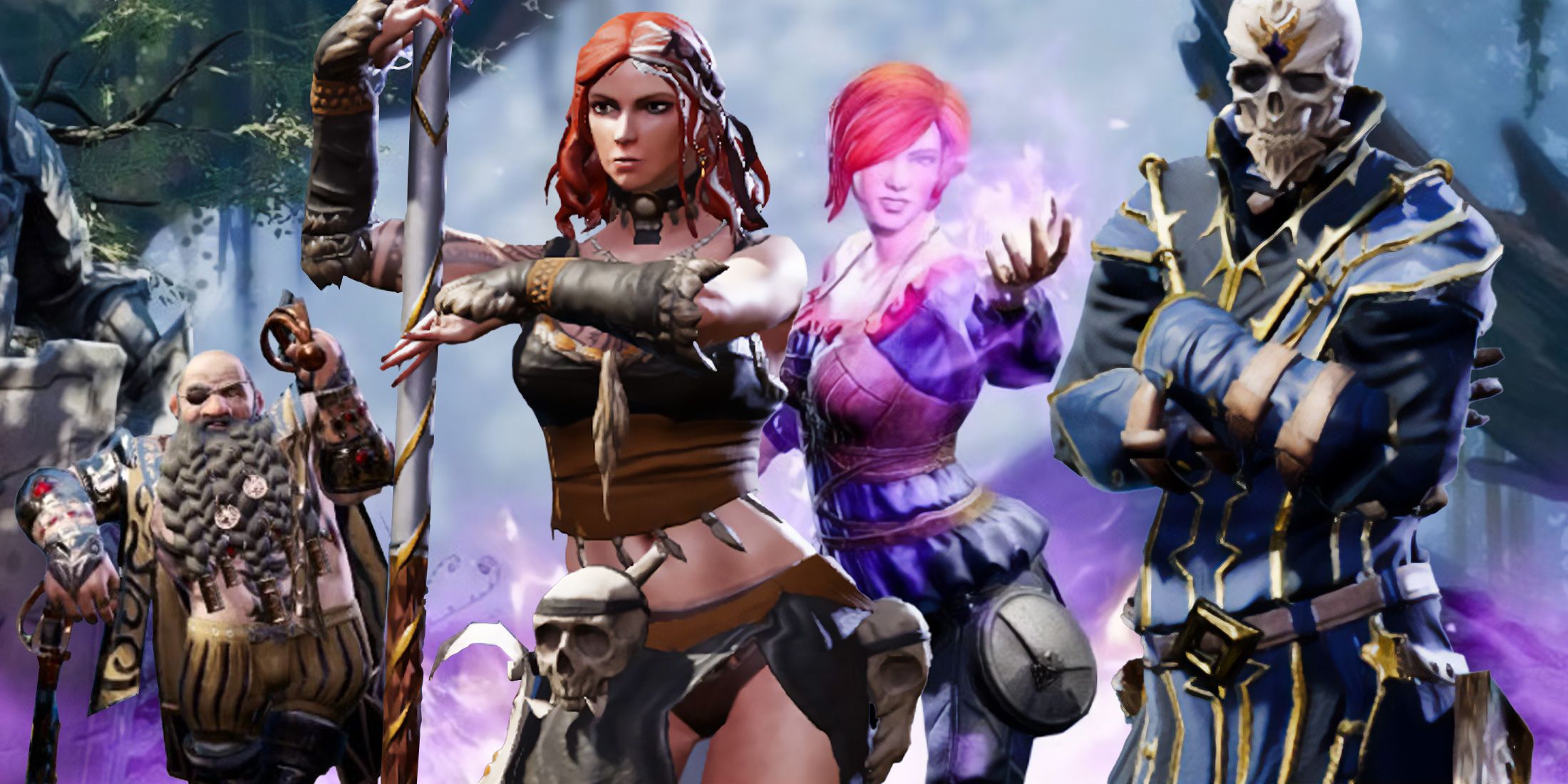
Related
Divinity: Original Sin 2 – The Best Class Choices For Every Main Character Companion
Finding the right companion in Divinity: Original Sin 2 can really make things easier on you. Here’s how you can get the most out of them.
Players should either not expect the world with this class in the early going or just pursue a more practical build until they can access the respec mirror. The latter can be a pretty intimidating course of action to take, so being patient is the way to go!
12 Take The Hothead Trait
Take Advantage Of Full Health From Afar
- Hothead adds 10% to both accuracy and critical chance at full health
- Necromancers are always at full health since they regenerate Vitality after inflicting damage
Hothead is a trait that increases both accuracy and critical chance for party members at full health. Suffice it to say, a necromancer will benefit quite a bit from this build.
After all, Necromancers are pretty much bound to be at full health since they regain Vitality with every bit of damage they inflict. This means that they’ll be able to make the most of the Hothead trait for the majority of their playthrough.
11 Use A Shield To Gain A Ton Of Armor Early On
Enhance Overall Defense
- A Shield gives a ton of Physical Armor to mages who are notorious for lacking in this department
- Mages rely more on Intelligence stat than the weapons they have anyway
There’s only one situation in Divinity: Original Sin 2 that warrants any form of investment in Constitution, and this is when players use a shield for one of their party members. Given how weak mages are early on when it comes to Physical Armor, it’s easy to see why a shield would be critical in the early going.
A necromancer who is solely pursuing an intelligence build should try and use a shield to minimize any potential damage early on. Given how rare good gear is in the game at this stage, it’s easy to see why players will avoid needless deaths if their necromancy spellcaster has a fair bit of armor to tank some hits.
10 Choose An Elf Or Human
Maximize Racial Bonuses
- Elves – Flesh Sacrifice: +1 AP at the cost of health
- Humans – Ingenious: Extra Crit Chance, Encourage: Increase ally stats
Elf and Human characters have unique racial abilities that work extremely well in a Necromancer build. The Elves’ Flesh Sacrifice adds one action point and extra damage at the cost of Constitution, while the Humans’ Ingenious talent and Encourage ability increases damage, Critical Chance, and other basic stats of nearby party members.
While Undead characters synergize decently, and Dwarves and Lizards are perfectly capable of taking up necromancy, Elves and Humans turn the class into a powerhouse of damage and support potential.
9 Look For Viper’s Tongue And The Reckoning
Maximize Stat Boosts
- Viper’s Tongue: +1 Strength, +1 Warfare
- The Reckoning: +2 Strength, +2 Intelligence, +2 Necromancy
Necromancers thrive in the early game with melee weapons and close-quarters combat. Abilities like Decaying Touch require the player to be very close to their target. While these two weapons require teleportation and defeating a boss, respectively, they are very worthwhile for the early-game necromancer.
2:19
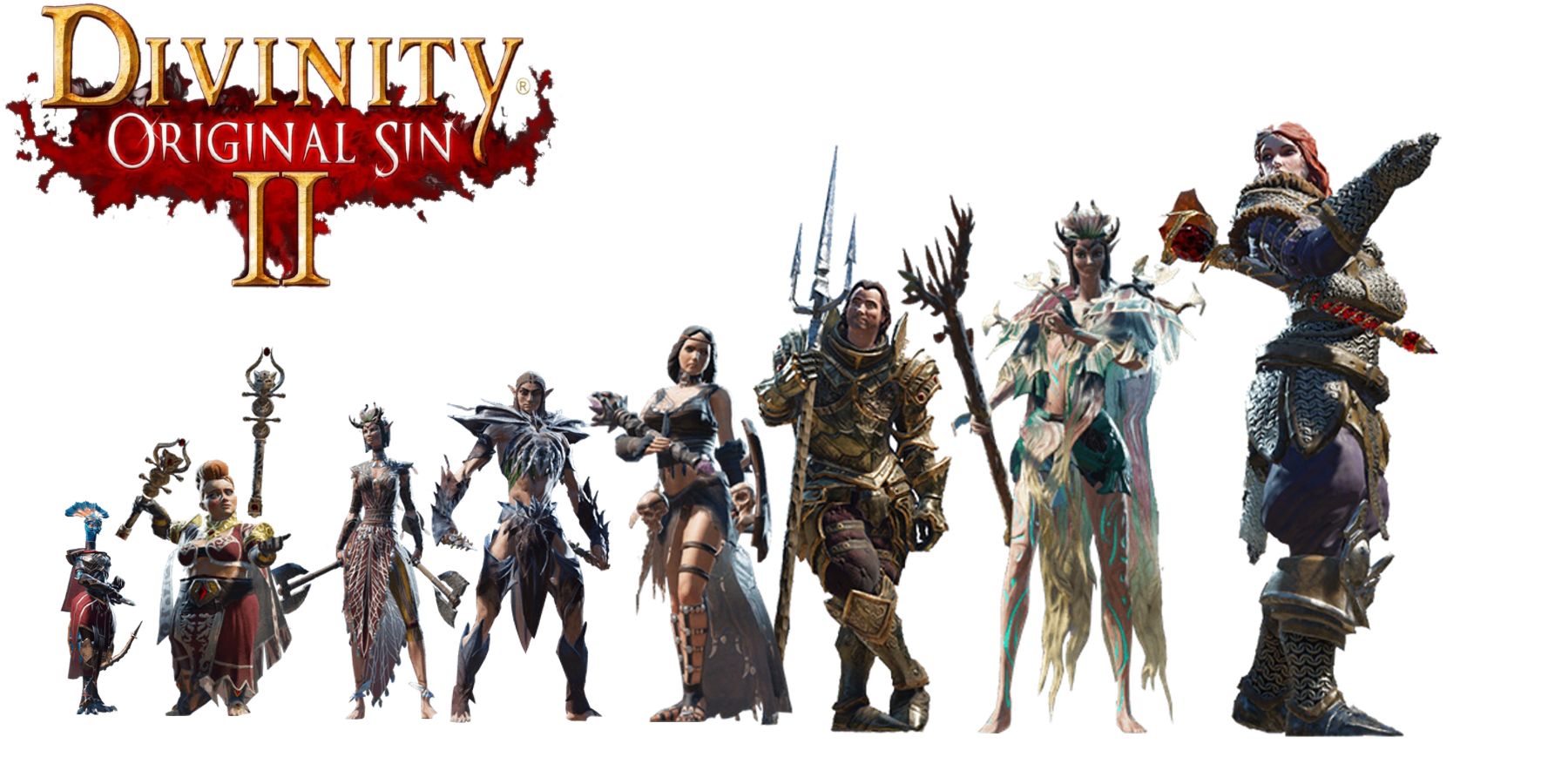
Related
Divinity: Original Sin 2 – Every Class, Ranked From Worst To Best
Each class has unique pros and cons in Divinity: Original Sin 2, but some stand out as better than the rest and are much more worth a player’s time.
On the bridge outside Fort Joy, the player can find the Viper’s Tongue, a one-handed sword that increases strength and warfare. Later on upon defeating Dallis, the player will receive The Reckoning, a two-handed mace that also increases necromancy.
8 Max Out Intelligence, Then Wits
Strengthen Spell Attacks
- Intelligence increases the damage of magical spells/effects
- Wits increases crit chance and initiative in combat
Intelligence is the primary stat caster classes use to increase magical potential and improve elemental skills. To maximize damage, it’s best to put as many points as possible into Intelligence and then put any remaining points into Wits.
Wits increases critical chance and initiative. While this is important, it’s best to put a single point into Wits for every two to three points in Intelligence. This gives more consistent damage output with spells but also allows for the slow improvement of critical hit chance over time.
7 *Put Only A Few Points Into Necromancer
Not All Skills Are Useful
- Necromancer heals the player when dealing damage to enemy vitality
- Warfare is more effective for increasing Necromancer damage, though
Despite being the namesake of the class, the player only really needs to put two or three points into the Necromancer combat ability to utilize most necromancy spells. When combined with equipped items that improve Necromancer, these points are quickly wasted.
With that said, the Necromancer combat ability heals the player every time they deal damage to vitality, and also improves the base damage done by necromancy abilities – but not as much as Warfare does.
6 *Focus On Warfare And Scoundrel
Give Necromancers A Tactical Edge
- Warfare: Increases Necromancer spell damage by more than the Necromancer ability
- Scoundrel: Movement Speed and Critical Multiplier increase
Surprisingly, Necromancy damage counts as physical damage, like a melee sword attack, and scales with a high Warfare combat ability. This makes it the best combat ability to put points in, even over the Necromancer combat ability, for its sheer damage increase.
After Warfare, the player should focus on Scoundrel, which adds a small amount of movement speed and a higher critical hit modifier. This comes in handy when paired with a decent Wits stat because it doesn’t increase the critical hit chance, just the percentage increase in damage a critical hit incurs.
5 *Choose The Savage Sortilege Talent
Make Spells Do Crits
- Savage Sortilege: Gives all magical skills a critical chance equal to the player’s critical chance score
- No prerequisites to pick up this talent, can be picked at the start
The Savage Sortilege talent is a must-take talent for necromancers looking to improve their critical chance score. This talent gives all magical skills a critical chance equal to the player’s critical chance score – generally, spells don’t crit, but this talent gives them this chance like any other attack in the game.
While a Necromancer’s toolkit is comprised of both spells and melee abilities, this talent is necessary for ranged abilities like Mosquito Swarm and Infect to critically hit.
4 *Choose The Elemental Affinity Talent
Strengthen Elemental Attacks
- Elemental Affinity: Reduces AP cost of spells by 1 when standing on the corresponding element
- Synergizes with Elf Flesh Sacrifice
The Elemental Affinity talent is one every casting class should possess. This talent reduced the action point cost of spells by one if the caster is standing on a surface of the same element. Water Mages need water, Fire Nages require fire, and Necromancers require blood.
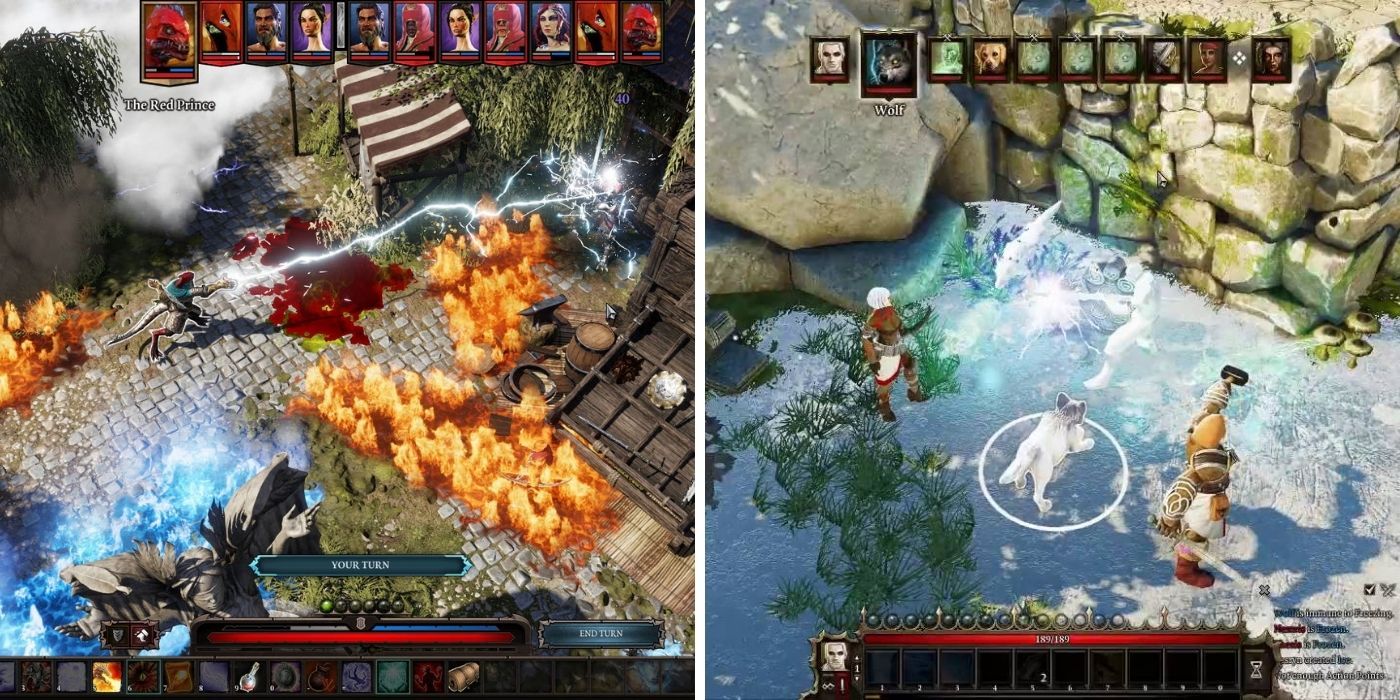
Related
Divinity 2: 10 Best Skills For An Elementalist
If you plan on building up an Elementalist in Divinity 2 you’ll definitely want to check out these fantastic skills for the class.
This pairs extremely well with the Elves’ Flesh Sacrifice racial, as a pool of blood appears directly below the character when the ability is used. Another talent to consider picking up is Vampirism, which heals characters standing in blood.
3 *Choose Party Members With Synergy
Consider Skill Interactions
Party member synergy is the central mechanism that pushes Divinity Original Sin 2 out of the traditional RPG genre and into its very own RPG/Sandbox fusion. An undead character benefits from standing in poison, for example, so a Geomancer can cast poisonous spells near them without any downsides.
For Necromancers, have at least one party member who can play support and a party member with summoning abilities. Once that party members’ summon dies, the necromancer can raise it again to fight as the fifth party member, and that’s only one synergy.
2 *Put One Point In Pyrokinetic For Corpse Explosion
Maximize Corpse Disposal
- Corpse Explosion: Deaks 250% player Physical Damage in an area around target corpse
- Only requires 1 point in Necromancy and 1 Point in Pyrokinetic
While a Necromancer has many abilities in its toolbelt, especially mid-late game, there are some auxiliary abilities that further enhance their corpse-controlling potential. Corpse Explosion requires one point in Pyrokinetic as well as one point in Necromancer.
This ability is ridiculously powerful at early levels, especially when used in tandem with teleport. Port any corpse into a group of enemies, cast Corpse Explosion, and watch the bodies fly.
1 *Consider Melee Or Ranged Necromancy
Choose The Most Ideal Style Of Combat
Necromancers thrive in melee builds, that is certain. Many of their abilities are touch-based and the best equipment for the class is often one-handed swords and shields. However, the strength of a ranged Necromancer is not to be ignored.
A ranged Necromancer should put points into Summoning to have a presence on the front lines. Huntsman and Archery are excellent too, but be aware that the character will run out of abilities quickly, leaving lots of time between cooldowns.
-

 What To Watch4 weeks ago
What To Watch4 weeks agoVenom 3 Ending, Post Credits Scenes Explained: Who Is Knull?
-
!['Venom: The Last Dance' ending, explained: What happened to [redacted]? 167 hero image.fill .size 1200x675.v1729702186](https://www.themearound.com/wp-content/uploads/2024/10/hero-image.fill_.size_1200x675.v1729702186-400x240.jpg)
!['Venom: The Last Dance' ending, explained: What happened to [redacted]? 168 hero image.fill .size 1200x675.v1729702186](https://www.themearound.com/wp-content/uploads/2024/10/hero-image.fill_.size_1200x675.v1729702186-80x80.jpg) Entertainment4 weeks ago
Entertainment4 weeks ago‘Venom: The Last Dance’ ending, explained: What happened to [redacted]?
-

 Movies4 weeks ago
Movies4 weeks agoBilly Crystal Struggles to Clarify Apple TV+’s Haunting New Horror Series “Before” | TV/Streaming
-

 What To Watch3 weeks ago
What To Watch3 weeks agoA Haunting Meta Doc About Ukraine’s Invasion
-

 Entertainment4 weeks ago
Entertainment4 weeks agoM4 Mac mini vs. M2 Mac mini: What are the differences?
-

 What To Watch3 weeks ago
What To Watch3 weeks agoNvidia Replaces Intel on Dow Jones Industrial Average
-

 Tech3 weeks ago
Tech3 weeks agoAutumn Internationals 2024 live stream: how to watch rugby union
-

 What To Watch3 weeks ago
What To Watch3 weeks agoHow Lone Justice Came Together to Create First ‘New’ Album in 38 Years

